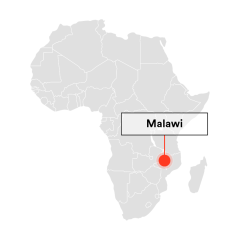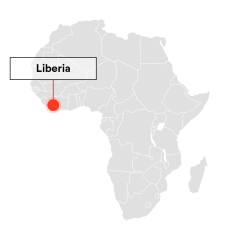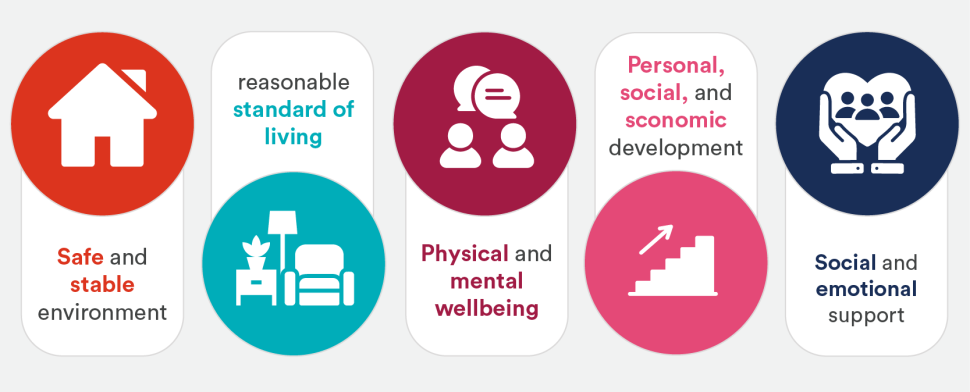Support the reintegration of survivors

Support the reintegration of survivors
Case Studies

Spotlight Initiative established community and survivor funds to improve access to services for survivors who could not otherwise afford to seek essential services or justice, while also supporting the economic recovery of survivors as part of longer term rehabilitation. Specifically, community and survivor funds were established to:
- Improve access to services for survivors and Obstetric Fistula patients (OF) from marginalised and remote areas;
- Support the economic recovery of survivors and OF patients as part of their long-term rehabilitation; and
- Improve access to justice by supporting witness testimonies in SGBV court cases, working with existing community committees and traditional authorities.
Results: Through the community funds, 873 survivors were able to access court, SRHR, police and counselling services, among others. Some communities used the funds to create a revolving fund for Village Savings and Loans (VSL), as a way of sustaining the initiative beyond the programme period.
Similarly, the survivor fund economically empowered 2,024 GBV survivors through the provision of start-up capital to engage in economic activities. Considering linkages between poverty and domestic violence and the stigmatisation of survivors who leave abusive partners, the new-found economic independence of the survivors is critical to averting further violence and to their social reintegration. The survivor fund also financed economic activities of 11,329 mentees, who are currently operating various enterprises including VSLs. The economic empowerment of mentees ensures the sustainability of the safe space mentorship programme while also motivating newly recruited mentees.



Most women in Malawi do not have access to formal financial services because of persistent barriers in access to identification documents, mobile phones, digital skills, and financial capabilities. To bridge the gap in digital financial services, Zayela Digital Finance Programme was officially launched in 2022. Zayela seeks to strengthen women's economic empowerment opportunities by promoting the digital financial inclusion of women and young women at risk of violence in Spotlight Initiative implementing districts.
Results: Working with Airtel Malawi to operate the digital accounts, a total of 2,936 women from 20 groups have benefitted from the initiative, with a total grant of MK20million (about USD 20,000) disbursed so far. The initiative has empowered women and girls’ groups economically and socially, and as a result, women are better placed to prevent and respond to SGBV. Using the proceeds from the Digital Finance programme, they are conducting awareness-raising and advocacy campaigns within their communities, following up on SGBV cases including attending district court sessions, and supporting SGBV survivors to access services.
Opportunities for Scale Up: Considering the wide coverage of Airtel Malawi, the programme has a lot of potential for scale up for working with more women and girls’ groups across the country. Moreover, already trained women could support fellow women and girls as mentors in setting up digital kiosks and using digital financing.



In Liberia, Spotlight Initiative has supported over 225,562 Liberian women and girls to access a wide range of services in health, justice, protection, psychosocial and economic support.
“We are now focusing on the agriculture and business activities the EU and UN helped us to establish. I have practiced FGM for most of my life but now I advocate for girls to get an education unhindered and make their own choice of whether to undergo the initiation after they are 18 years old. I am happy that I still get to teach our good traditions to our girls and young women without causing any harm in the heritage centres.” - Chief Zoe in Sonkay Town.
The initiative is working with some 300 traditional practitioners of FGM, also known as Zoes, to engage in socioeconomic livelihood projects including climate-smart agriculture and Village Savings and Loans Associations for income generation and economic security as a substitute to practicing FGM for income.
The work with the Zoes also incorporated the construction of four vocational and heritage centres for sustaining positive traditions and cultures while serving as training grounds for women and girls in self-sustenance skills.



The Mutuelle de solidarité (MuSo or Solidarity Fund for VAWG Survivors in English) responds to the economic dependence of women survivors of violence. It is both a popular financing tool and a self-help group. Since 2020, as part of Spotlight initiative, CAPAC - Centre d'Animation Paysanne et d'Action Communautaire - has been developing this solidarity fund system among women in Haiti to enable them not only to accumulate savings and grant loans tailored to their needs, but also to facilitate access to a contingency fund and external financing.
Results
By the end of 2021, a total of 12 solidarity funds were operational in three regions; 11 of the funds have been able to set up community-based income-generating activities in agriculture, livestock farming and trading.
Overall, the funds have 350 members, whose have contributed to funds and accessed loans. This has provided increased social assistance to members, with some 'red funds' specifically assigned to bereavement, childbirth, illness, marriage, etc.
Given that the majority of Mutuelles de Solidarités are made up of women, it can be said that MuSo strengthens women's social capital and, by the same token, their ability to manage risks. The MuSo therefore plays an important role in reducing feelings of isolation and powerlessness.








